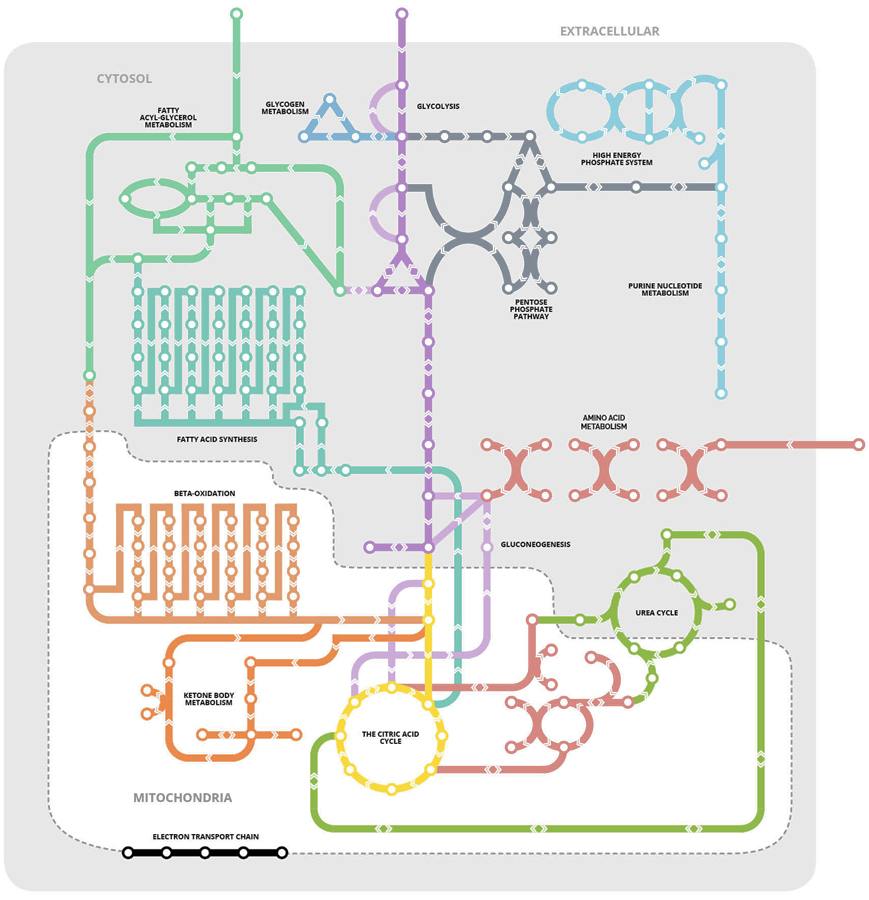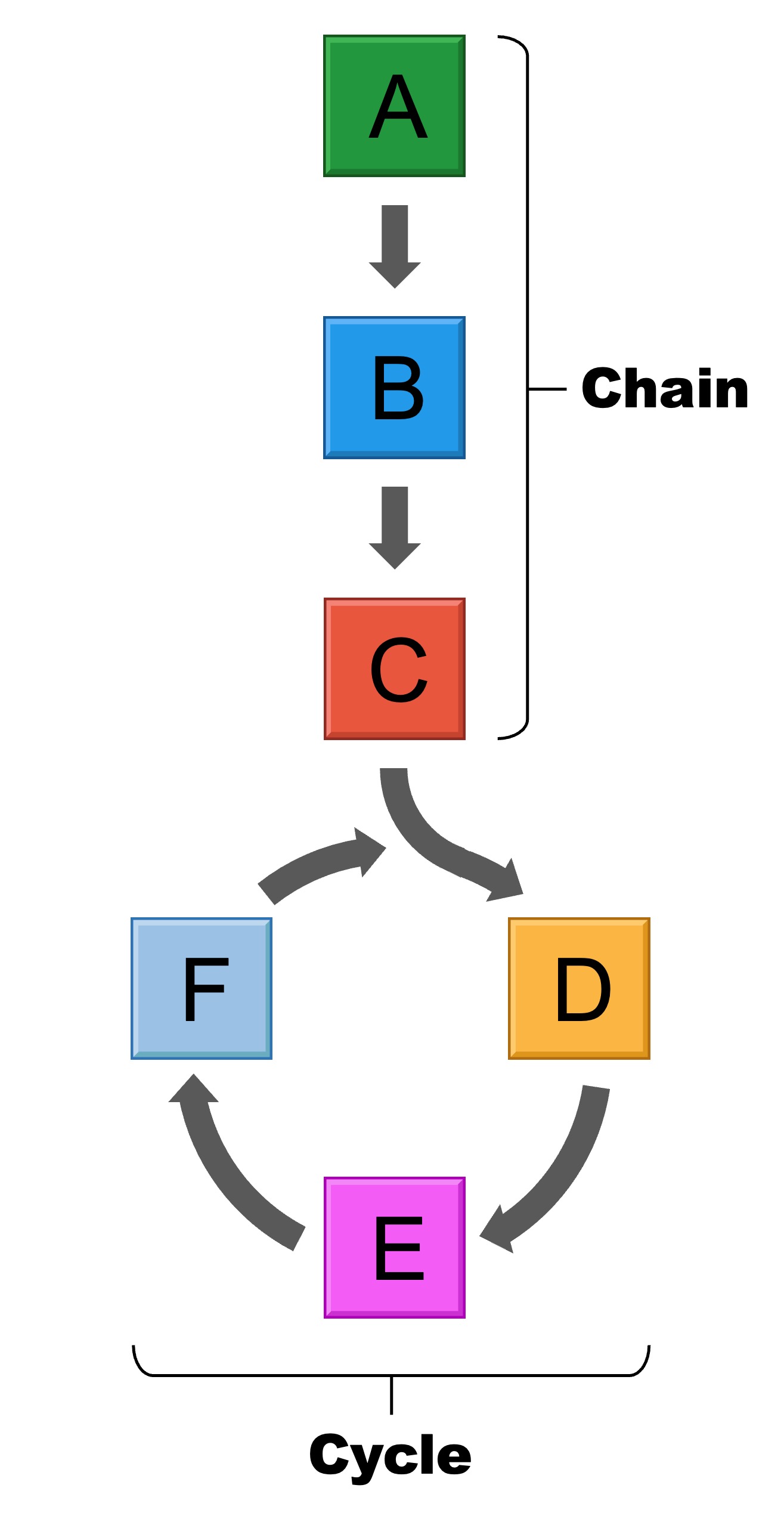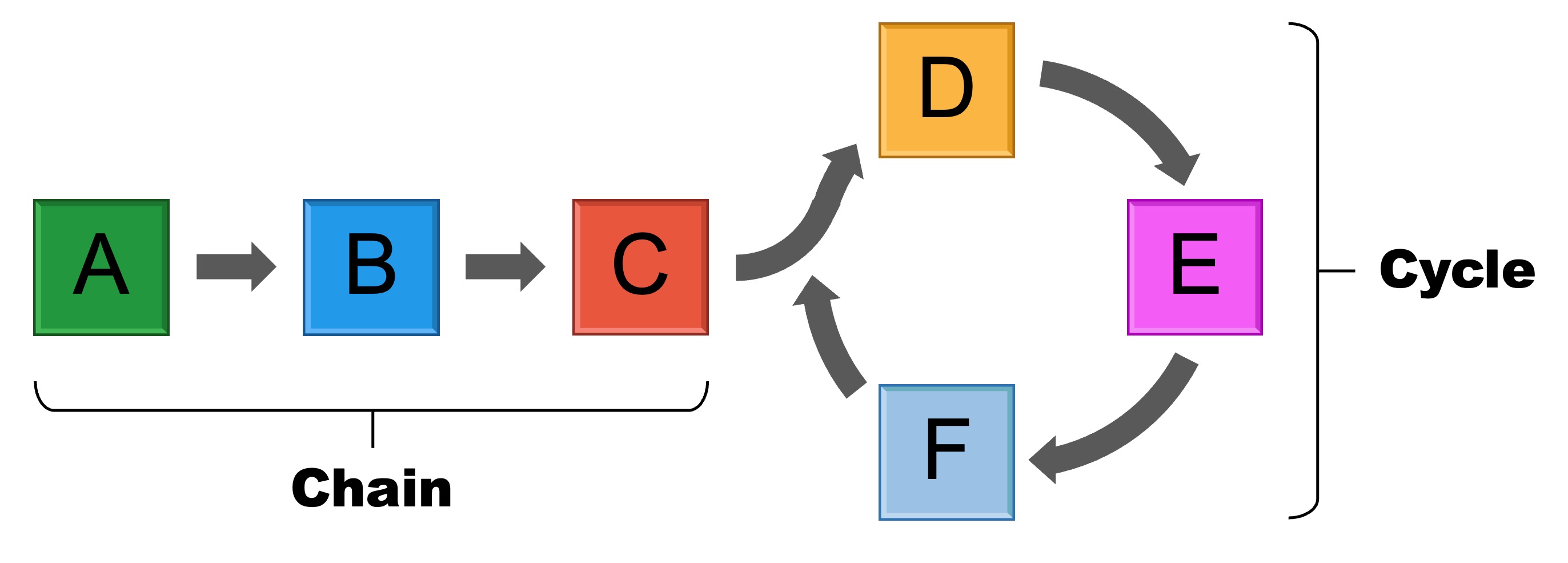Controlling Metabolic Pathways

Metabolic Pathways Pdf Here we review the diverse mechanisms cells use to adapt metabolism to specific physiological states and discuss how metabolic flux analyses can be applied to identify important regulatory nodes to understand normal and pathological cell physiology. We are interested in how metabolism can be controlled by intrinsic factors like the presence of substrate, product, or co factors. the tca cycle, a key pathway for energy production and biosynthesis, achieves exquisite control through these metabolic mechanisms.

Metabolic Pathways Here we analyze the conditions under which biomolecular condensates can amplify the yield or selectivity of diverse metabolic pathways. Metabolic control refers to adjusting the output of a meta bolic pathway in response to an external signal. by con trast, metabolic regulation occurs when an organism maintains some variable relatively constant over time, despite fluctuations in external conditions. Unicellular and multicellular organisms must control their metabolism in order to survive. all metabolic pathways have to be regulated and controlled to stop the build up of an end. Metabolic pathways are regulated through various mechanisms including enzyme activity, feedback inhibition, and hormonal control.

Metabolic Pathways Unicellular and multicellular organisms must control their metabolism in order to survive. all metabolic pathways have to be regulated and controlled to stop the build up of an end. Metabolic pathways are regulated through various mechanisms including enzyme activity, feedback inhibition, and hormonal control. We review recent evidence for a role of metabolism in modulating cellular function in four distinct contexts. these areas include the immune system, the tumor microenvironment, the fibrotic response, and stem cell function. These metabolic pathways are integrated and controlled so that connections exists between pathways, with checkpoints that can be self regulating to ensure the right rate of reaction is taking place. Metabolic control analysis (mca) establishes how to determine, quantitatively, the degree of control that a given enzyme exerts on flux and on the concentration of metabolites, thus substituting the intuitive, qualitative concept of rate limiting step.

Metabolic Pathways We review recent evidence for a role of metabolism in modulating cellular function in four distinct contexts. these areas include the immune system, the tumor microenvironment, the fibrotic response, and stem cell function. These metabolic pathways are integrated and controlled so that connections exists between pathways, with checkpoints that can be self regulating to ensure the right rate of reaction is taking place. Metabolic control analysis (mca) establishes how to determine, quantitatively, the degree of control that a given enzyme exerts on flux and on the concentration of metabolites, thus substituting the intuitive, qualitative concept of rate limiting step.

Metabolic Pathways Chemtalk Metabolic control analysis (mca) establishes how to determine, quantitatively, the degree of control that a given enzyme exerts on flux and on the concentration of metabolites, thus substituting the intuitive, qualitative concept of rate limiting step.
Comments are closed.